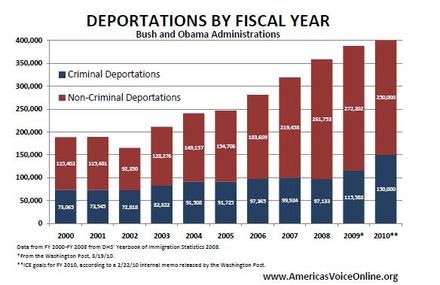A few months ago, This American Life re-aired an episode from 2002 about the campaign to get the American Psychiatric Association to remove homosexuality from the official list of psychiatric disorders. Until the 1970s, the DSM, the bible of the psychiatric profession, classified homosexuality as mental disease under the heading of “sexual deviance.” Beginning about 1970, gay rights activists began an ambitious campaign to get the entry removed. They disrupted the 1970 and 1971 conventions, and in 1972 they convinced a gay psychiatrist to address the convention in disguise and talk about the harmful effects of the classification. Then at the 1973 convention, a gay rights activist forced the issue by bringing a key straight APA official to an after-hours meeting of prominent gay psychiatrists at a gay bar. Learning that many well-respected members of the psychiatric profession were in the closet helped to persuade him to support changing the definition.
 The thing I found most striking about the story is that almost everyone on both sides of the debate regarded themselves as compassionate people who were trying to help homosexuals. People in what we would now consider the anti-gay camp regarded the classification as a compassionate alternative to the earlier practice of punishing homosexual acts with jail time. They also regarded themselves as enlightened scientists. Psychiatrists like Irving Bieber made their careers with studies that supposedly showed the link between homosexuality and other mental illnesses.
The thing I found most striking about the story is that almost everyone on both sides of the debate regarded themselves as compassionate people who were trying to help homosexuals. People in what we would now consider the anti-gay camp regarded the classification as a compassionate alternative to the earlier practice of punishing homosexual acts with jail time. They also regarded themselves as enlightened scientists. Psychiatrists like Irving Bieber made their careers with studies that supposedly showed the link between homosexuality and other mental illnesses.
Of course, the supposed scientific evidence for the harms of homosexuality was remarkably flimsy. Virtually all the studies about the harmful effects of homosexuality were conducted in prisons, mental hospitals, and similar environments—it’s little wonder that gay people in these settings tended to have problems. But because gays were stigmatized, straight people rarely had direct contact with normal, well-adjusted, out gay people. And so people both inside the psychiatric profession and outside of it readily accepted the flimsy evidence offered by the researchers like Dr. Bieber. And Dr. Bieber regarded himself as a compassionate man of science even as he spread false and pernicious ideas.
I think something similar is going on in the immigration debate. There are millions of undocumented immigrants in the United States. Most of them work hard, pay their taxes, support their families, and contribute positively to society. But because they are segregated and despised minority, public attention tends to focus on the small fraction of illegal immigrants that commit violent crimes, become addicted to drugs, go on welfare, and the like. People make sweeping generalizations about illegal immigrants, suggesting that they’re less patriotic, less law-abiding, less interested in integrating into American society, and so forth. Rarely is credible evidence offered for these generalizations, but people readily believe them because they confirm their existing prejudices.
Consider the common argument that tighter immigration restrictions are required to uphold “the rule of law.” Virtually every American citizen breaks the law on a regular basis. We speed, jaywalk, fail to pay use taxes, set off illegal fireworks, smoke pot, infringe copyrights, fail to register our firearms, and so forth. Most of us adopt a laid back attitude when our friends or family break such laws. We might chastise them, but we generally don’t think it merits severe punishment.
Attitudes are completely different when it comes to “illegals.” Here the American public clamors for the law to be strictly enforced—even against those who have been productive members of American society for many years. And the penalty they demand—deportation—is far more severe than the penalties faced by American citizens for all but the most serious crimes.
As I said yesterday, I don’t think most Americans understand that we’ve made it essentially impossible for low-skilled immigrants to work here legally. Nor do they realize that there are thousands of “illegals” who were brought here when they were children and have never known another home.
To be clear, I think this is less a matter of malice than of intellectual laziness. By all accounts, Irving Bieber didn’t hate gay people; he just didn’t try very hard to understand them. Similarly, the American voters who clamor for stricter immigration enforcement aren’t trying to ruin immigrants’ lives, they just haven’t thought very hard about what it would be like to be in an immigrant’s shoes.
But it’s precisely because double standards arise so naturally that we’ve developed strong stigmas against indulging them. We have strong taboos against making lazy generalizations about (or advocating discriminatory policies against) blacks, Jews, Catholics, homosexuals, or other traditionally disadvantaged groups. This taboo provides a counterweight to the ugly, tribal part of the human psyche that has created so much misery over the centuries.
Unfortunately, there’s no analogous stigma with respect to illegal immigrants. To the contrary, liberals and conservatives alike compete to show how tough on illegal immigrants they are. So the same natural but ugly habits of thought that did so much damage to blacks, Jews, gays, and other minority groups in the past are stoking public hostility towards immigrants today. Merely correcting factual and logical errors is unlikely to be effective in the face of this kind of entrenched prejudice. What needs to be done is what the gay rights movement did in the early 1970s: to humanize the debate by focusing attention on specific, sympathetic individuals who have been harmed by the existing policy. The DREAM Act does this beautifully. The Founders Visa does just the opposite.






